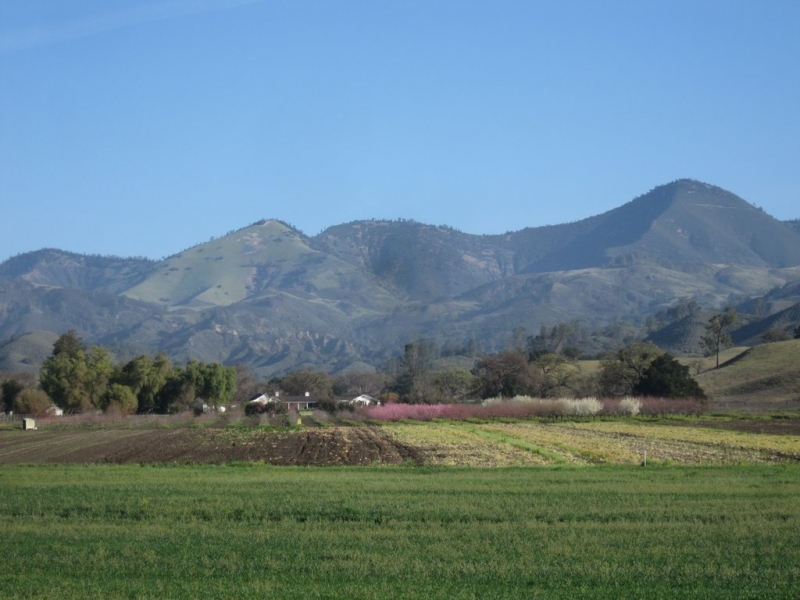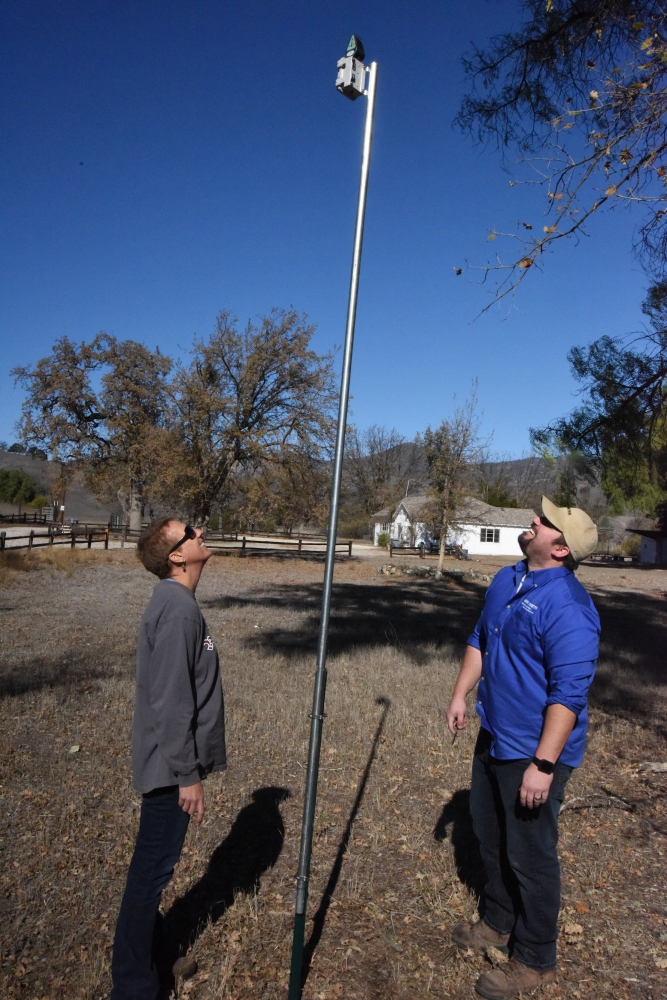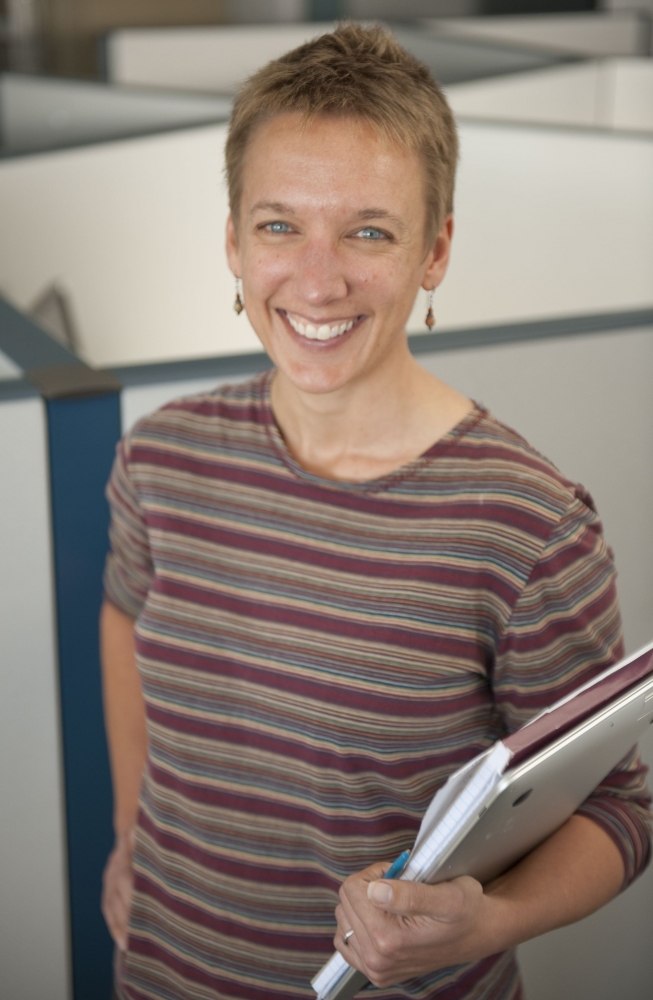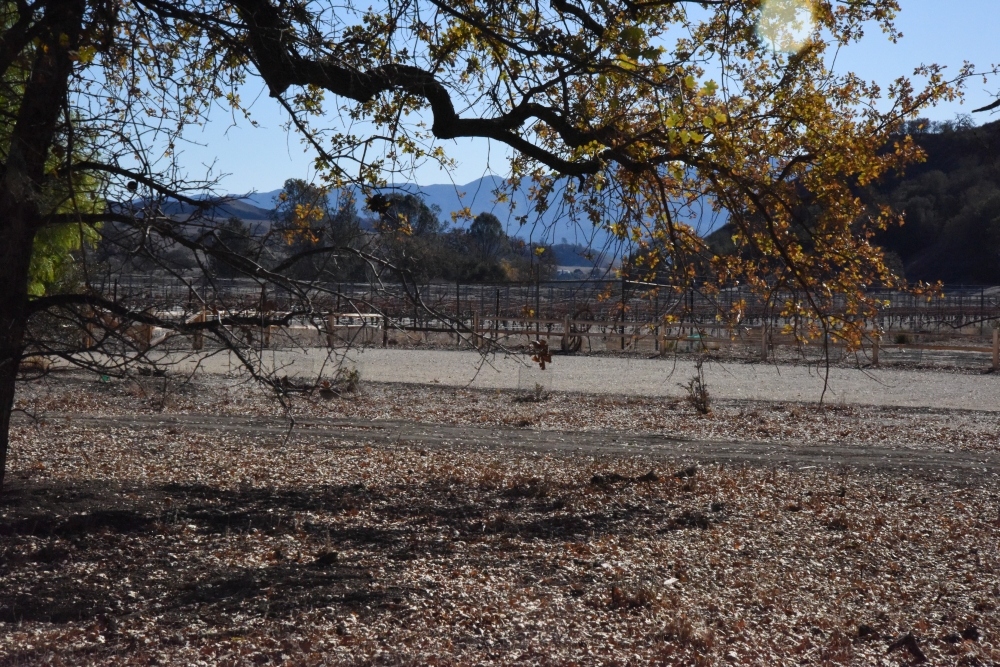
Farm Aid



You can take the girl from the farm, but you can’t take the farm from the girl. Just ask Chandra Krintz.
Raised in an agricultural community in rural Indiana, Krintz grew up with parents and neighbors who tended crops and animals. Now a computer scientist at UC Santa Barbara, she’s taking her engineering expertise out of the lab and onto the farm, sharing it with growers and ranchers in a long-range push toward food sustainability.
Krintz’s tech-based project, dubbed SmartFarm, inspired her selection as UCSB’s faculty Sustainability Champion for 2016. Coming with a $25,000 grant to advance her ongoing efforts, the honor, she said, has accelerated her endeavor beyond expectation.
“The award has really helped and I am so grateful for it,” said Krintz, a professor of computer science. “It’s made our work more visible across campus and allowed me to meet and interact with amazing people who are working on pieces of this problem. It’s helped me build collaborations. It’s also given me more credibility — my university and the college are behind me in this project — and I really believe it played a big role in my success getting some of the grants I have received. It’s been tremendous.”
Atop funding from the National Science Foundation, Krintz and her SmartFarm team of students and fellow faculty members also have been supported by the California Energy Commission. The awards have allowed them to engage with about 120 experimental and small production farms in the region, where they are testing and refining their tech-driven ideas to streamline farming.
In this connected era of the so-called Internet of Things and the proliferation of “smart” devices — from phones to watches to dishwashers — your refrigerator can now tell you when you’re out of milk. So why shouldn’t the irrigation system on your farm be able to let you know when it’s sprung a leak before you find water pooled on the ground?
That’s the thinking behind SmartFarm, explained Krintz, who is working to design software that employs sensing systems and analytics to address problems farmers face — from irrigation leaks to the weather. By collecting and crunching data from farms, she said, the app-inspired technology will enable growers to make better decisions. It could ultimately inform consumer decisions as well, by way of an end-to-end, farm-to-retail product-tracking tool.
The primary goal? To make farmers, and farms, more productive and, simultaneously, more sustainable.
“My main passion is trying to bring technology to those who are underserved by it,” Krintz said. “I grew up in an ag environment, on a small farm, but I had gotten away from that. Reflecting on my past and looking for a new community to try to help, I came to combine the two in ag tech — bringing technology to ag and growers and ranchers. I like the problem and I’m passionate about it because it’s vital to sustainability. Farmers and growers are people who take care of our land and are producing our food, and it’s really challenging to try to do that sustainably.
“This is all really driven by sustainability,” she added. “We have to bring technology because it’s too complex a problem for the average human to tackle on their own. We need computers and experts getting together and sharing their knowledge, and I’m hoping to design the computer system to facilitate that. And it has to be super easy to use so it can be consumable by someone whose pure interest is raising more crops or producing better animals.”
The SmartFarm system is akin to a Tivo unit, or AppleTV: a modest hardware device outfitted with a user-friendly app. And the code will all be open-source, Krintz emphasized, so that it can evolve as farming does.
“It’s not just about designing software that helps make farming more sustainable — it’s about designing systems that themselves are sustainable,” she said. “That’s a challenge that industry is not necessarily going to take on, which is one reason why we think it’s important to do it here, in academia, at UCSB.
“We need better tools to make better decisions, as a society, about our food, about food safety, about our productivity and about our waste,” Krintz continued. “This is the beginning of a computing system that is very far-reaching in terms of impacting global health in parts of the underdeveloped world as well as the developed world. I think we can all benefit from more information and automation. And computer scientists, we know how to do that. We just need to build them and make sure everybody has access to them. Not just the people with money, but everyone. That’s what we’re driving at.”



